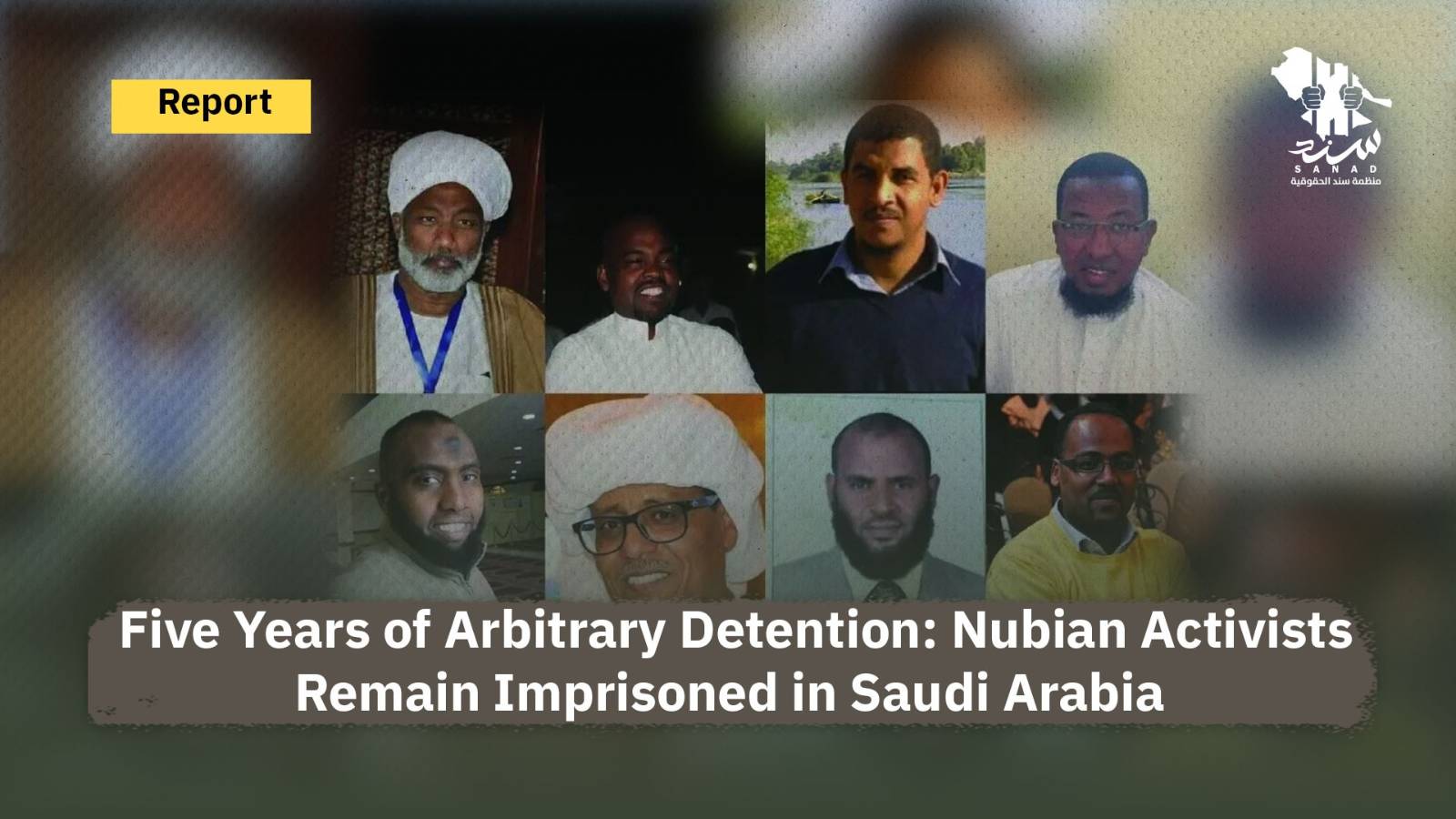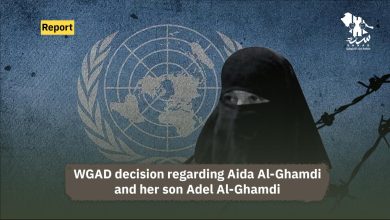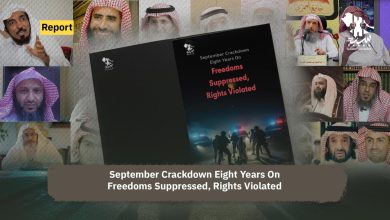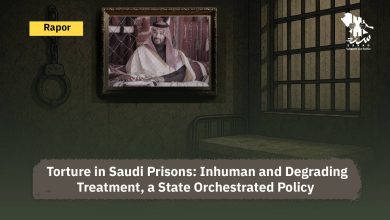
Five Years of Arbitrary Detention: Nubian Activists Remain Imprisoned in Saudi Arabia
On October 25, 2019, Saudi authorities arrested ten Egyptian citizens of Nubian descent ahead of a peaceful cultural event they planned to hold at the Nubian Association in Riyadh. Though no charges were initially filed, the men were released two months later in December and placed under travel bans.
In July 2020, the activists were rearrested and held in harsh conditions, completely isolated from the outside world for two months. During that time, they were denied access to lawyers and family.
On October 10, 2022, the Specialized Criminal Court handed down harsh prison sentences ranging from 10 to 18 years. The charges were related to their plan to commemorate the October 1973 War. In February 2023, the Court of Appeals upheld the sentences.
The men first appeared in court in November 2021—over 16 months after their arrest—which was also the first time they met their lawyers. They were charged under Saudi Arabia’s counterterrorism law with forming an unlicensed association, using social media, and expressing solidarity with a terrorist group.
Numerous human rights violations were reported during their detention, including arbitrary arrest, enforced disappearance, denial of legal representation, and alleged forced confessions. Elderly detainees such as Adel Sayed Ibrahim Faqir (68) and Faragallah Ahmed Youssef (66) were denied necessary medical care despite suffering from chronic illnesses.
Amnesty International condemned the arrests, stating the ten Nubians should never have been detained, let alone tried in the notoriously abusive Specialized Criminal Court. The organization called for their immediate and unconditional release, asserting that they are being punished solely for peacefully exercising their rights to freedom of expression and association.
Michael Page, deputy director of Human Rights Watch’s Middle East division, commented:
“Saudi authorities appear to have arbitrarily arrested these Nubian men in retaliation for expressing their cultural identity. While the government spends billions hosting sports and cultural events to improve its global image, these arrests show a blatant disregard for the rights and heritage of others.”
The ten men are currently held in Abha Prison in the Asir region. They are:
Adel Sayed Ibrahim Faqir
Dr. Faragallah Ahmed Youssef
Jamal Abdullah Masri
Mohamed Fathallah Gomaa
Sayed Hashem Shater
Ali Gomaa Ali Bahr
Saleh Gomaa Ahmed
Abdelsalam Gomaa Ali Bahr
Abdullah Gomaa Ali
Wael Ahmed Hassan Ishaq
All were active in Riyadh’s Nubian community, organizing informal cultural and social gatherings.
Sanad Human Rights Organization expresses grave concern over their continued detention and calls on Saudi authorities to release all ten men immediately and unconditionally, and to ensure they receive adequate medical care.






